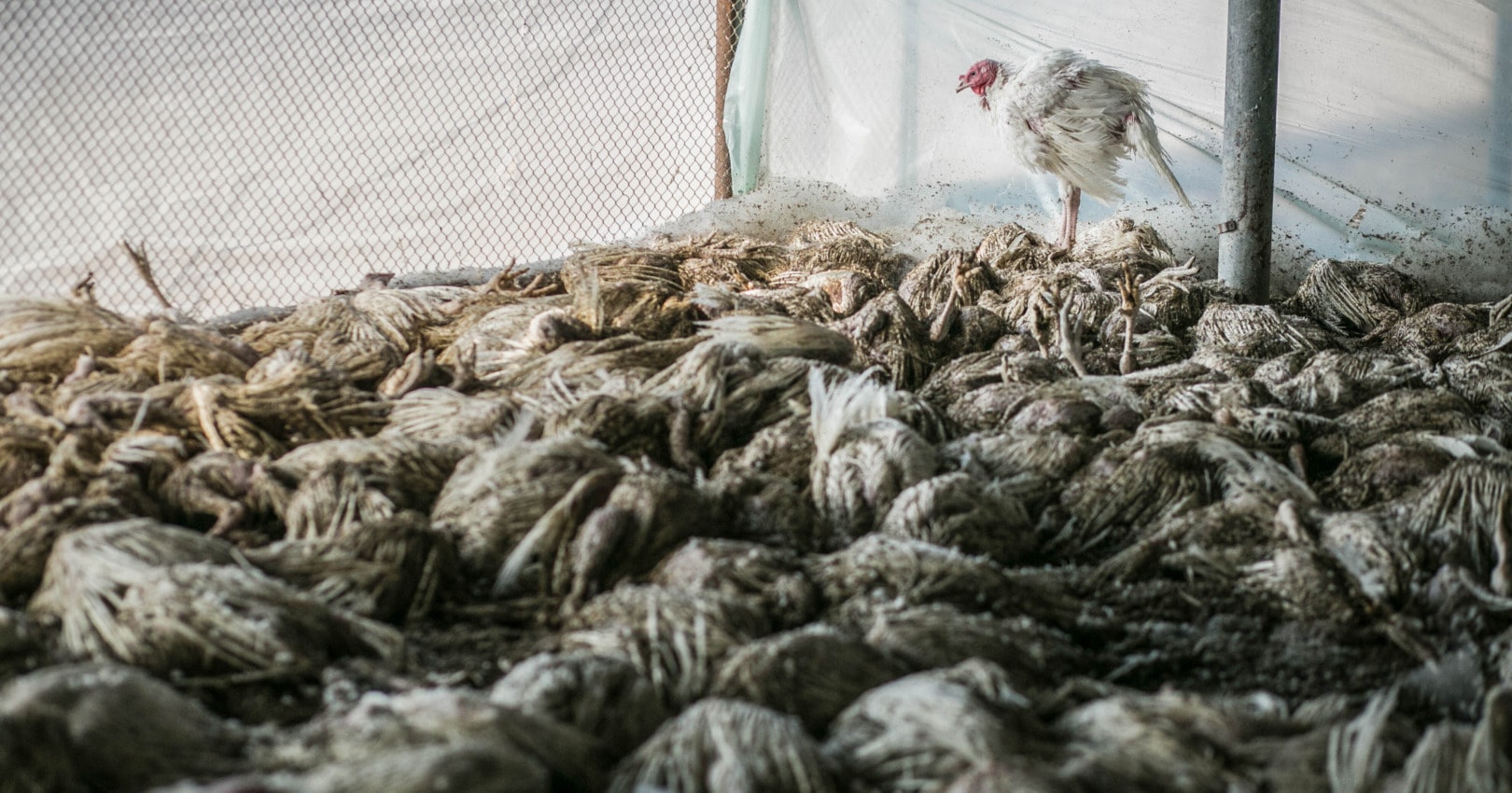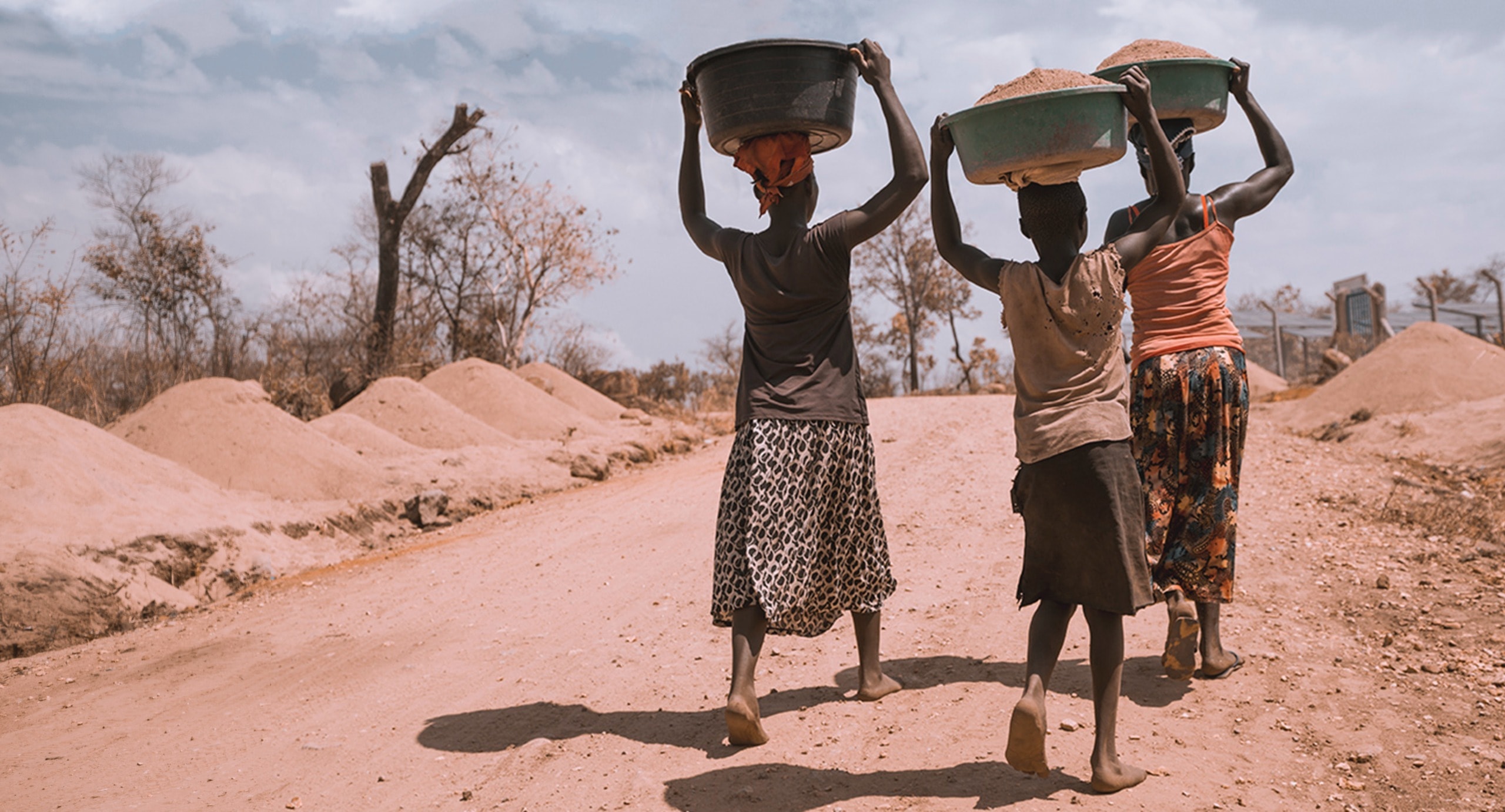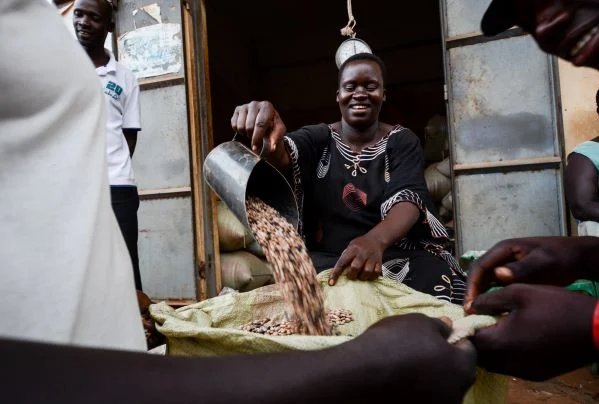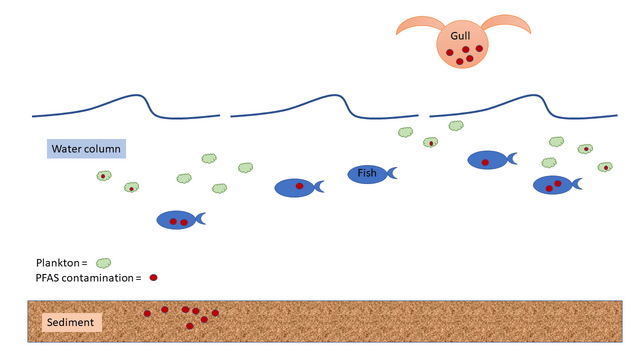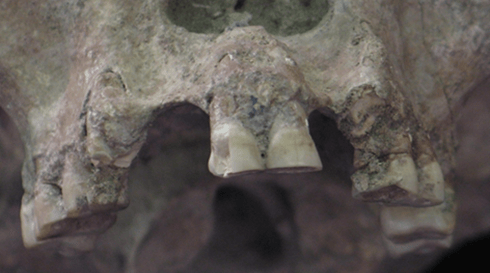In these days of isolation, worry, illnesses, and death, a lot of people are hopeful that the COVID-19 pandemic will teach us how to do things better. That it will be not a return to the past but a gateway to a better world.
“We will not go back to normal,” posts Sonya Renee Taylor on Facebook, “Normal never was.” Then she doubles down on the idea: “Our pre-corona existence was not normal other than we normalized greed, inequity, exhaustion, depletion, extraction, disconnection, confusion, rage, hoarding, hate, and lack.” And she concludes, calling for change: “We should not long to return, my friends. We are being given the opportunity to stitch a new garment. One that fits all of humanity and nature.”
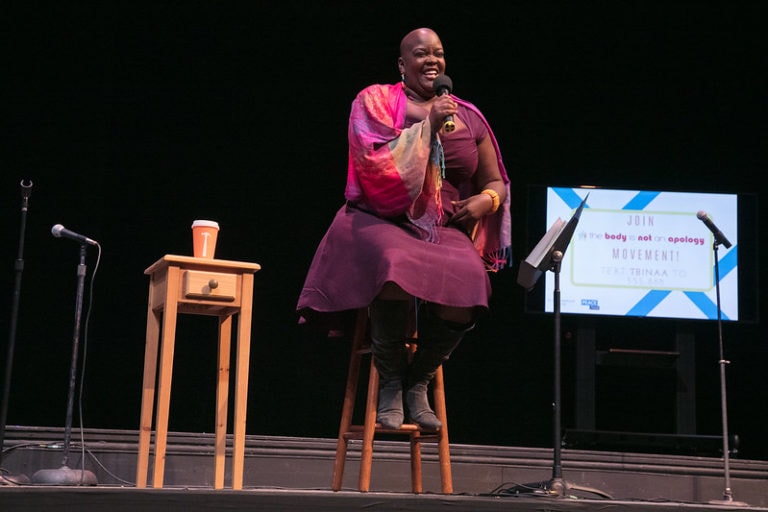
Sonya Renee Taylor is a poet, a humanitarian and social justice activist, founder of The Body is Not An Apology movement, and author of the self-help book with the same title.
We will not return to “normal,” concurs Governor Andrew Cuomo of New York State, “we move forward into a new normal” based on the lessons we have learned
“If a way to the better there be,” wrote Thomas Hardy, “it exacts a full look at the worst.” We are having our full look, all right; but I am not sure that going through the pandemic will necessarily endow us with the will to do better.
Novelist Arundhati Roy, in a recent Financial Times article on titled The Pandemic is a Portal, writes about how the coronavirus threatens the world and what we should do next, noting that:
“Historically, pandemics have forced humans to break with the past and imagine their world anew. This one is no different. It is a portal, a gateway between one world and the next. We can choose to walk through it, dragging the carcasses of our prejudice and hatred, our avarice, our data banks and dead ideas, our dead rivers and smoky skies behind us. Or we can walk through lightly, with little luggage, ready to imagine another world. And ready to fight for it.”
As we pass through the pandemic portal, which way will we go? Will it be back to the same old economic and social inequities, or into worlds structured in brand new ways for the common good?
BEYOND THE PANDEMIC: NEW WAYS?
There is nothing new about the position that profit-taking must come first for social well-being to follow or the conviction that well-being comes first and creates prosperity. Americans have been divided over the issue of whether people or profit should be our bottom line for more than a century.
In our present situation, President Trump and the Republican party come down on the side of profit.
With regard to whether we should “open up” the economy or not, Trey Hollingsworth, a Republican legislator from Indiana, insists that more COVID-19 deaths are the lesser of two evils compared to the economy tanking due to social distancing measures. The next day, Hollingsworth provided CNN with a more tempered statement while still conveying much the same message: “It’s hyperbolic to say that the only choices before us are the two corner solutions: no economy or widespread casualties. We can use the best of biology and economics to enable as much of the economy to operate as possible while we work to minimize disease transmission.”
On the people side, the Reverend Doctor William J. Barber II, a Protestant minister and architect of the Forward Together Moral Monday Movement concurs with Sonya Renee Taylor and Governor Cuomo, posting that “from now on, living wages, guaranteed health care for all, unemployment and labor rights are not far-left issues, but issues of right vs wrong and life vs death.”
In the immediate pre-pandemic period (do you remember?) the Democratic Party was deeply engaged in its presidential primary.
Every candidate suggested ways of restructuring society to curtail corporate greed and benefit the American people as a whole. Among them was a brilliant young entrepreneur named Andrew Yang, who proposed a “Human-Centered Capitalism” calling for the government to refocus on human wellbeing as the go-to metric for economic success.
Yang argues that the fulfillment of citizens’ basic needs causes prosperity: his call for a Universal Basic Income (UBI) of $1000/month for all citizens over 18 is based on his conviction that meeting people’s needs enhances the GDP (Gross National Product).
This “new” idea is similar to the “Freedom Budget for All Americans” proposed by A. Philip Randolph, Bayard Rustin and Martin Luther King in 1967, calling for “full employment,” “decent and adequate wages,” “decent medical care,” “purification of our air and water,” and a “decent living standard” for all as necessary for “full production and high economic growth.”
So what happened to that idea in the intervening decades?
Like the 1918 Influenza, coronavirus poses an existential threat to our medical and economic survival. It has fallen upon us at a time when our sense of human fragility is intensified by the gut-wrenching threat of global warming, plunging us into existential dread not only for our species but for the survival of life on our planet.
As a result, we have been devising technological innovation to “drawdown” carbon emissions and reduce the industrial excesses threatening us with extinction.
We have seen a plethora of schemes for structural reforms like “The Collaborative Commons,” “Post-Capitalism,” and the “Circular Economy” as ways to meliorate the social viciousness of the “old normal” economy.
These add up to what Joanna Macy describes as a “Great Turning” whereby we replace an “economic system dependent on accelerating growth” with a “self-sustaining society.”
She believes that “A revolution is underway because people are realizing that our needs can be met without destroying our world. We have the technical knowledge, communication tools, and material resources to grow enough food, ensure clean air and water, and meet rational energy needs.”
She urges us not to waste energy “demonizing the politicians and corporate CEOs who are in bondage to” the present economic system. Instead, we should seek out and support the initiatives and innovations already taking place all over the world: “in countless localities, like green shoots pushing up through the rubble, new social and economic arrangements are sprouting.”
As we hope and seek to undertake social change after the pandemic, Macy’s trust in and examples of our capability for innovative reform are heartening.
ONE GREEN SHOOT: THE PEOPLE-CENTERED ECONOMY
Will computer technology be the answer?
One promising technique is the i4j (Innovation for Jobs) project, explained in an essay collection on the The People-Centered Economy: The New Ecosystem for Work by a variety of CEOs, software engineers, and technological innovators. Their premise is that we can shift our “task-centered economy” from its focus “on lowering the cost of tasks” to create one that raises “the value of people.”
“The economics of today does not make sense,” argue innovators David Norfors and Vint Cerf. “The improvement of information technology is making it ever more important to encourage humane people-centered economics, because the better we get at computing, the more imaginatively we can use analytics and economics to steer and shape society.”
One of their job innovations is “Coolabilities,” which involves hiring according to specific skills and capabilities rather than the job histories you find on standard resumes. This practice creates a much wider candidate pool than usual in including workers on the autistic spectrum or who solve problems in unusual ways.
They use Artificial Intelligence to sort through quantities of candidate data, a technique they also deploy to steer businesses toward better health and environmental outcomes while retaining profitability.
My daughter, Dr. Lorien Pratt (chief engineer at www.quantellia.com, is a primary innovator of Decision Intelligence and a co-author of an article in the PCE collection. “Decision intelligence demystifies Artificial Intelligence by applying it in ‘practical settings,’” she writes. “it uses AI, data, and human expertise to support organizations as they reason through complex cause-and-effect chains from policies and actions to business outcomes.”
Dr. Pratt develops this argument more fully in her book Link: How Decision Intelligence Connects Data, Actions, and Outcomes for a Better World where she repudiates taking Artificial Intelligence as a spooky cadre of “terrifying robots.” Unlike AI, we humans “understand how the systems of the world operate,” and ask the right questions of big data to find the societal outcomes we desire.
“I believe,” she concludes, “that our role now is to responsibly create our future. We have always had the power to change our future. This is completely different. The changes we orchestrate will be intentional, global, and focused on long-term and distant impacts that were previously impossible to understand. Without stepping up to this responsibility, unintended consequences will inevitably multiply.”
Businesses were showing signs of adopting a people-centered philosophy before the pandemic. In September 2019, the Business Roundtable – a lobby for big companies – had replaced its old mission statement, an unapologetic declaration that corporations are in the business of making money, with a softer one acknowledging ‘a fundamental commitment to all our stakeholders,’ including workers and communities.
WHICH WAY THROUGH THE GATEWAY?
Is our capacity for reasoned analysis and technological innovation sufficient to overrule the bottom-line ethics of traditional capitalism, not to mention the fear and enmity underlying our current politics? Once through the pandemic gateway, what is there about having experienced the epidemic that will prevent us from sliding back into our same old ways?
The mere recognition of the health and income inequities the pandemic has revealed will not in and of itself impel us to action.
Whether we carry through or not starts with a broadening of our moral imaginations, but it depends on our developing a set of values and the moral will to enact them.
Consider the case of Governor Cuomo, who, in his daily briefings on CNN, assumes that
- We will take the (pandemic) moment
- We will learn its lessons
- We will apply what we have learned
- If we don’t apply what we have learned, shame on us!
His moral philosophy appears toward the end of this video:
The operative word here is “shame.” Cuomo’s assumptions are built upon his personal moral values. In spite of his reputation as a tough politico and financial operator, his pandemic policies blend fact with social responsibility and a solid grasp of the science with compassion.
In my state of Michigan, Governor Gretchen Whitmer has acted on her similar blend of public responsibility with reasoned decision-making. Her declaration of a State of Emergency with its accompanying stay-at-home strictures have lowered our infection rate significantly.
Although most Michiganders concur with her decision to shut down our economy for the common good, there have been vicious demonstrations against her policies in the state capitol. Contemptuous bands of Libertarians have been joined by Militias and hate groups in Lansing, egged on by the President and the Michigan Republican Party.
The demonstrators wave Confederate flags, shout Nazi slogans, position Militias armed with assault weapons in the balcony of the State Senate, and fill the Capitol building with unmasked, close-packed, screaming mobs.
Though they suggest the worst Angels of our Nature, every one of them is spurred on by chosen values.
For most, money is the bottom line; they are quite justifiably terrified that the shutdown has left them unemployed, with their family finances in jeopardy. “Open up the state,” they shout, their fear transformed to anger.
The Libertarians act on the principle that individual freedom should not be overridden by government edicts. “Don’t tread on me,” is their motto. The Nazis and White Supremacists who yell “You Will Not Replace Us” are horrified that people of color will soon be the majority population in the United States.
Nor are they without a sense of responsibility; it is just that the good of the untrammeled individual or of their Aryan cohort trumps any duty to the common good.
As I write, our President is insisting that states all “open up” their economies, with the full awareness that their rates of deaths and infections will double as a result.
Meanwhile, in California, it is reported that “thousands of people have been let out of jails and prisons, cash bail has been eliminated for most crimes, thousands of homeless people now have roofs over their heads, and children in rural and poor areas of the state are being sent tens of thousands of laptop computers for distance learning – temporary measures to combat the pandemic that leaders are hoping will become durable solutions to longstanding problems of inequity.”
Here come the Better Angels of our Nature!
Post-pandemic reform will depend on utter clarity about which values we make ourselves responsible to enact.
Are we aware of our moral compass? Have we reviewed its workings lately? If so, what values comprise our True North? Do we have the moxie, the personal will, and moral courage, to live by them? Most crucially, is our political will strong enough to seek out allies and go into action?
In the end, it all comes down to that greatest glory and direst pitfall of human life – our capacity for choice.
Editor’s Note: The opinions expressed here by Impakter.com columnists are their own, not those of Impakter.com— In the Featured Photo: Time to read, summer vacation by Byron Villegas Flickr




